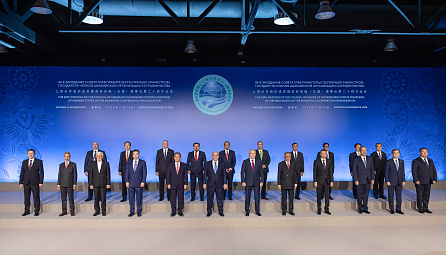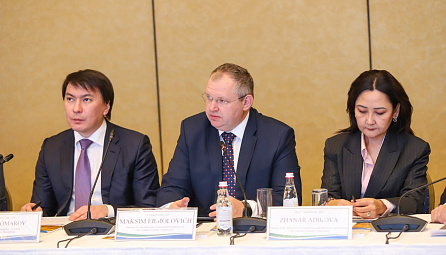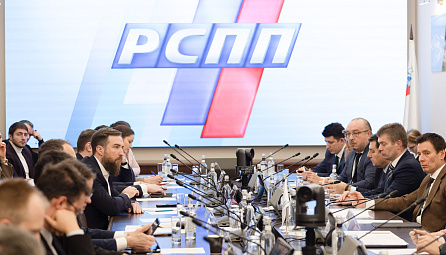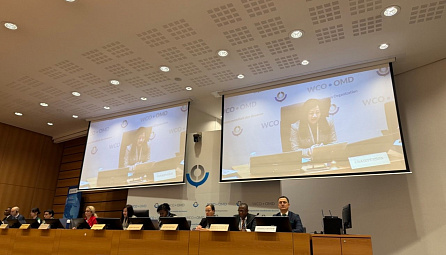20 Nov 2025
Arzybek Kozhoshev: “The EAEU transportation framework is the basis for the Union countries’ sustainable development”
19 Nov 2025
EAEU and ASEAN strengthen cooperation in consumer rights protection
19 Nov 2025
EEC Council approved new cooperative project and subsidy from EAEU budget to implement it

18 Nov 2025
Bakytzhan Sagintayev participated in meeting of SCO Heads of Government Council

17 Nov 2025
Promising trends in industrial cooperation between EAEU countries in road-construction mechanical engineering identified

17 Nov 2025
Maksim Yermalovich: “Kazakhstan has come a long way in developing competitive environment”

17 Nov 2025
Andrey Slepnev and business community discussed relevant matters on EEC trade agenda

17 Nov 2025
Procedure for approbating interval quantitative values of foreign economic forecasts updated
14 Nov 2025
EAEU and India discussed work on Free Trade Agreement

14 Nov 2025
EEC and Standing Technical Committee of World Customs Organization strengthen cooperation
14 Nov 2025
Ruslan Davydov informed on prospects for using electronic navigation seals “from Tashkent to St. Petersburg”
14 Nov 2025
Ruslan Davydov visited checkpoints at customs border between EAEU and Republic of Uzbekistan
